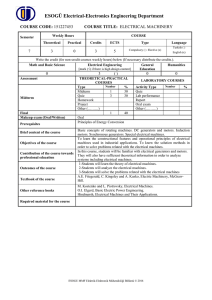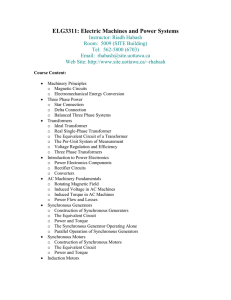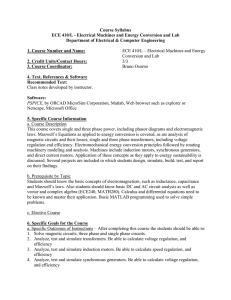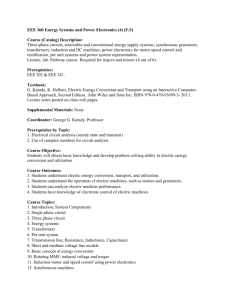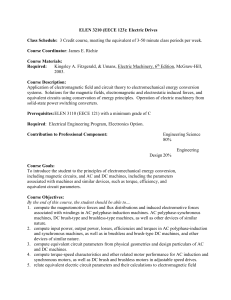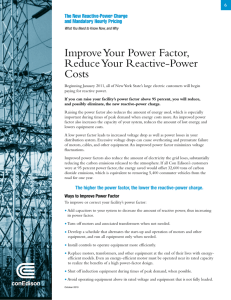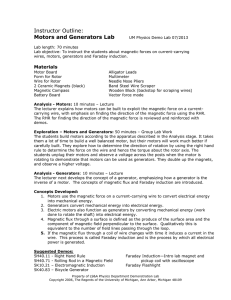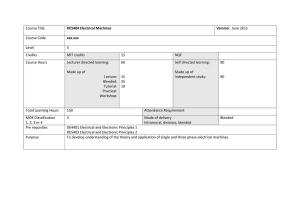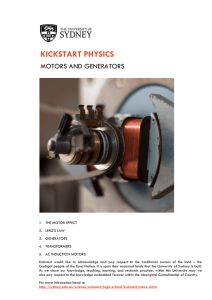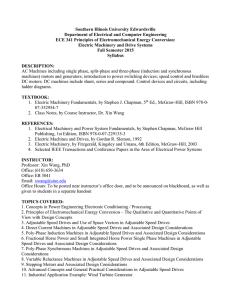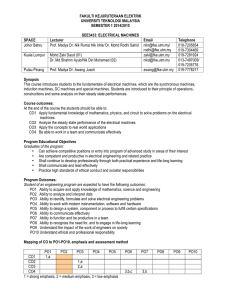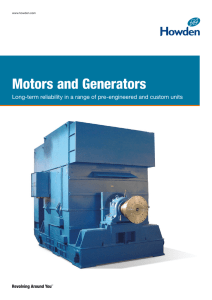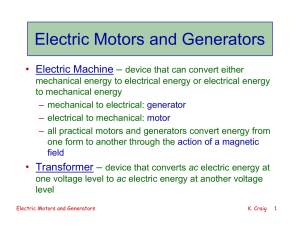ESE352 Syllabus Electromechanical Energy Converters
advertisement
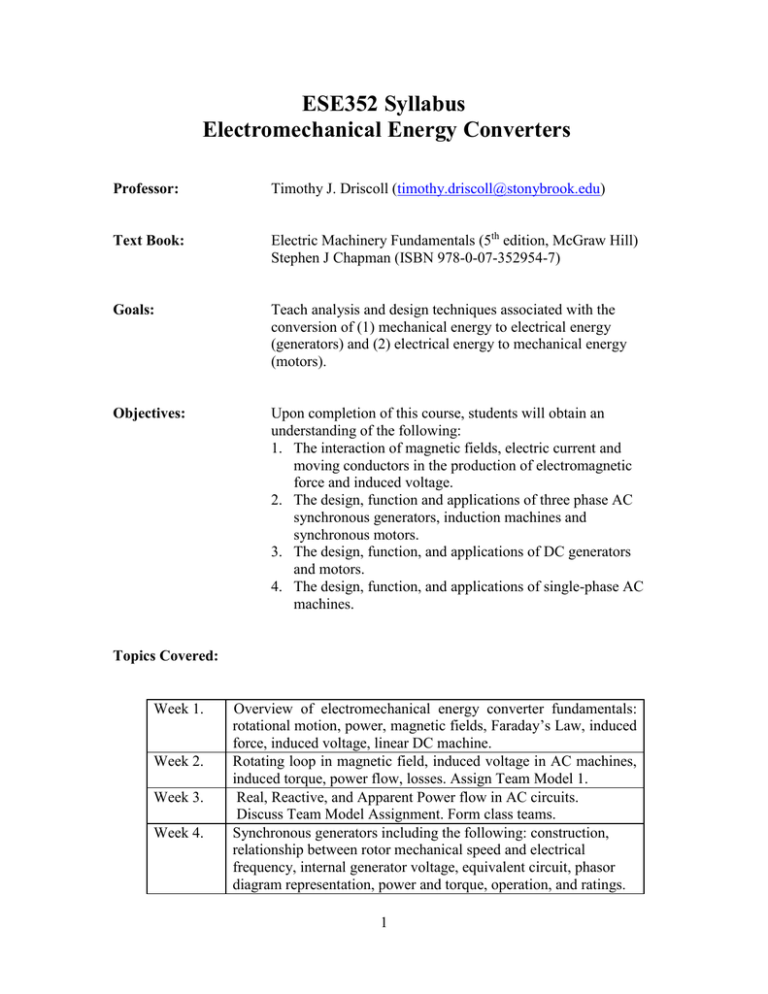
ESE352 Syllabus Electromechanical Energy Converters Professor: Timothy J. Driscoll (timothy.driscoll@stonybrook.edu) Text Book: Electric Machinery Fundamentals (5th edition, McGraw Hill) Stephen J Chapman (ISBN 978-0-07-352954-7) Goals: Teach analysis and design techniques associated with the conversion of (1) mechanical energy to electrical energy (generators) and (2) electrical energy to mechanical energy (motors). Objectives: Upon completion of this course, students will obtain an understanding of the following: 1. The interaction of magnetic fields, electric current and moving conductors in the production of electromagnetic force and induced voltage. 2. The design, function and applications of three phase AC synchronous generators, induction machines and synchronous motors. 3. The design, function, and applications of DC generators and motors. 4. The design, function, and applications of single-phase AC machines. Topics Covered: Week 1. Week 2. Week 3. Week 4. Overview of electromechanical energy converter fundamentals: rotational motion, power, magnetic fields, Faraday’s Law, induced force, induced voltage, linear DC machine. Rotating loop in magnetic field, induced voltage in AC machines, induced torque, power flow, losses. Assign Team Model 1. Real, Reactive, and Apparent Power flow in AC circuits. Discuss Team Model Assignment. Form class teams. Synchronous generators including the following: construction, relationship between rotor mechanical speed and electrical frequency, internal generator voltage, equivalent circuit, phasor diagram representation, power and torque, operation, and ratings. 1 Week 5. Week 6. Week 7. Week 8. Week 9. Week 10. Week 10. Week 12. Week 13. Week 14. Week 15 Meet with Teams on Model 1 assignment. Synchronous motors including: rotating magnetic field, equivalent circuit, steady-state operation, starting issues, phasor diagrams, ratings. Team Presentations: Model 1. Review sessions 1 through 5. First exam. Review First Exam. Induction machines including: construction, slip and frequency, equivalent circuit, torque, torque-speed characteristics, induction motor design, starting challenges, speed control, induction generators, and induction machine ratings. DC machinery fundamentals including: rotating coil between magnetic poles, commutation, induced voltage and torque, machine construction, power flow, losses. Assign Team Model 2. DC motors and generators including: equivalent circuits for separately excited, shunt, permanent magnet, series and compound machines, starting circuits, and machine efficiency. Meet with teams on Model 2 assignment. Team Presentations: Model 2. Single phase motors including: universal motor, single phase induction motor, starting challenges, equivalent circuits. Special-purpose motors including: split phase, capacitor start, capacitor start/capacitor run, shaded pole, and stepper motors. Assign presentation for practical applications. Practical applications of single-phase motors including electric appliances. Class presentations of practical Electromechanical Energy Converters. Review for second (final) exam. Second (Final) exam Notes: Homework assignments are due at next session. The weekly quiz will cover material discussed during the previous session. Final grade will be determined as follows: Homework, Weekly Quiz, Projects, Participation 34% First Exam 33% Second Exam 33% 100 2
